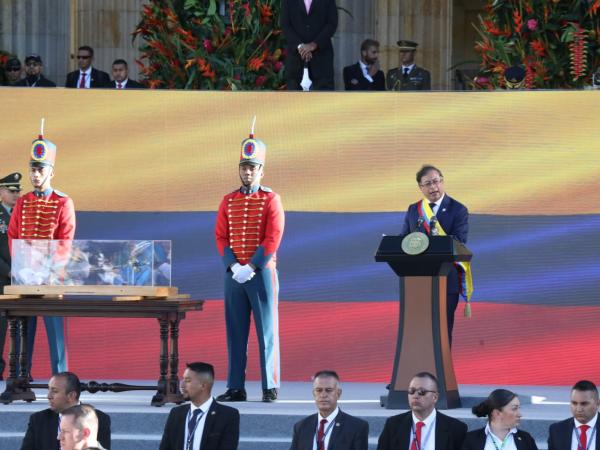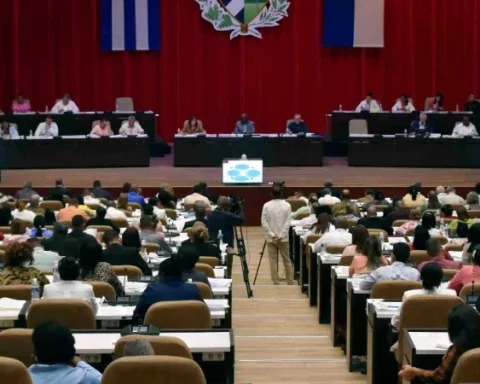A tax reform of $25 billion for the year 2023, that was the proposal that was presented yesterday the government of Gustavo Petro. In the morning hours, the Minister of Finance, José Antonio Ocampo, filed before the Congress of the Republic a 69-point article focused on income tax for people who receive income of more than $10 million per month, on eliminating exemptions and in “healthy and environmental” taxes.
(Read: Tax on blood sausage? Foods that would be taxed in the tax).
Ocampo highlighted how the reform aims to build “progressiveness, equity and efficiency, with three specific social objectives: eradicate hunger, reduce poverty and dismantle preferential tax treatment that benefits the wealthiest.”
Natural people
In what has to do with natural persons a collection of $8.1 billion is expected, for income related to income and wealth tax. One of the central points of the project is precisely the income to natural persons, and as Ocampo clarified, “people who earn $10 million a month or less will not pay more and the additional income will come from 2.4% of people with higher incomes” .
For this, the reform modifies the limits of exempt income. In the case of exempt income automatic will drop from $120 million to $50 million, and in deductions from $210 million to $33 million.
“They are the technical ways of specifying what the minister and I have said in different scenarios,” explained Luis Carlos Reyes, director of the National Tax and Customs Directorate (Dian). “These caps today what they do is that they benefit people with much higher incomes, and we are going to reduce them so that the benefit ceases to apply from $10 million”, clarified the official.
And in the case of the wealth tax, it is sought to establish it as a permanent tax, with a series of marginal rates, and it will be charged from $2,736 million (72,000 UVT).
The companies
“In the case of companies, what we do is eliminate a lot of very specific tax benefits for certain sectors. From the point of view of fairness, we are looking for all companies to have the same taxation system”, clarified the Minister of Finance.
In this way, the rental rate would be maintained at legal persons in 35%, but for the financial sector, which today has a surcharge of 3 percentage points, it is proposed to maintain the differential tax.
(Also: The sugary drinks that would have taxes in the Petro government).
“In order to prevent the abuse of these drawdowns by legal entities”, according to Ocampo, the reform seeks to impose a limit of 3 percentage points on the ordinary net income to the tax benefits that are maintained (which can be exempt income, deductions, discounts, income that does not constitute income).
It is also proposed to convert deduction of the 50% discount on the payment of the Industry and Commerce Tax (ICA) applicable to income tax and review the rate of occasional business profits at 30%.
healthy taxes
The last great tax package pI reviewed a collection for $2.5 billion. In the first place, the project proposes that ultra-processed sugary drinks, such as soft drinks, soft drinks, juices, malts, energy drinks and fruit nectars, would be taxed based on the sugar content in grams per 100 milliliters of the product.
Thus, those with a content of less than 4 grams of sugar per 100 ml would have a rate of $0; between 4gr and 8gr, a fee of $18 per 100ml would be imposed, and if the sugar content is greater than 35gr, the value would be $35.
A similar case occurs with ultra-processed food products, for which proposes a 10% fee. They include sausages, such as sausages, mortadella and pepperoni, French fries, fried potatoes or packed pork rinds; sweet cookies, wafers and wafers, chocolate candies, ice creams, blancmange and cereals, among others.
This tax “will be borne by the producer, the importer, or the economic link of one and the other,” according to the articles.
Single-use plastics would also be taxed, with a rate of $1.9 per gram and taxes the sale and import of plastics used to pack, pack or package goods only once, and the carbon tax base is expanded.
(Keep reading: This is the ABC of the tax reform of the Petro government).
underground resources
Another group of taxes that the project incorporates have to do with progress towards the energy transition and a “correction” in companies dedicated to the exploitation of products that derived from the exploitation of the subsoil. And with this, it seeks to raise a little more than $7.02 billion in 2023.
A 10% tax on extraordinary exports is proposed, which at today’s prices would be 4.6% for oil, 7.6% for coal and 7.8% for gold compared to the effective rate of the tax. In addition, the project proposes that royalties are not deductible from the income tax depuration.
LAURA LUCIA BECERRA ELEJALDE

















